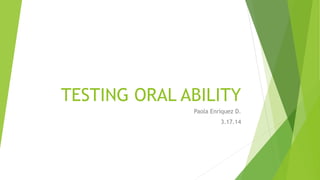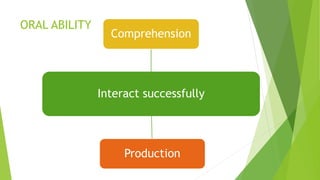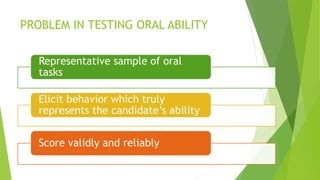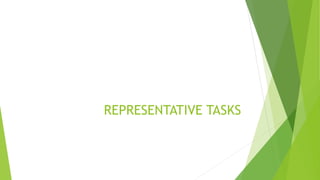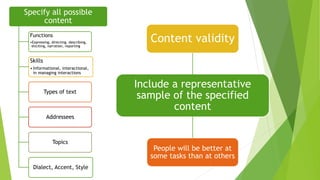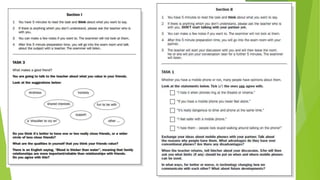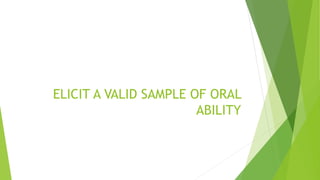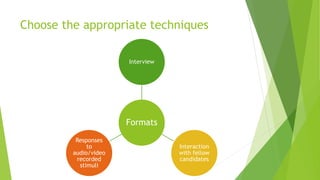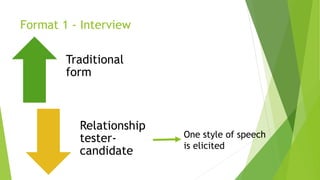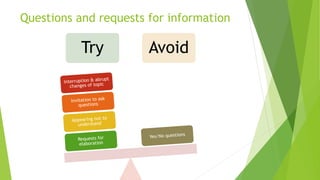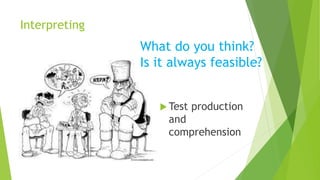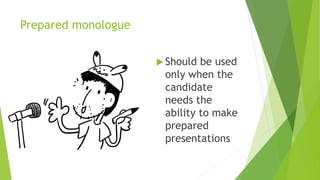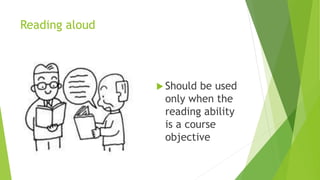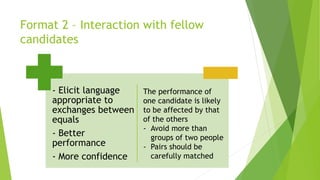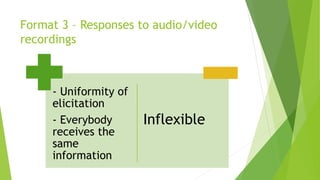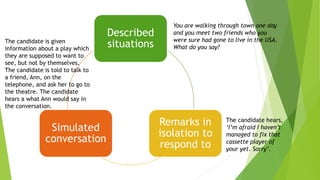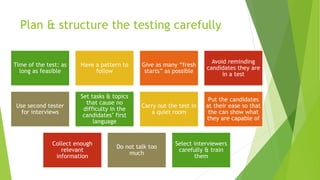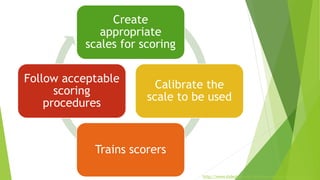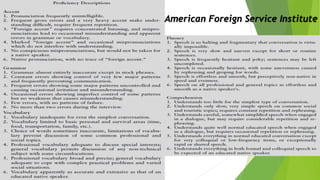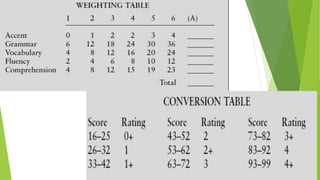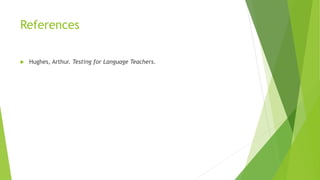Testing oral ability
- 1. TESTING ORAL ABILITY Paola EnrÃquez D. 3.17.14
- 3. PROBLEM IN TESTING ORAL ABILITY Representative sample of oral tasks Elicit behavior which truly represents the candidateâs ability Score validly and reliably
- 5. Specify all possible content Functions âĒExpressing, directing, describing, eliciting, narration, reporting Skills âĒ Informational, interactional, in managing interactions Types of text Addressees Topics Dialect, Accent, Style Include a representative sample of the specified content Content validity People will be better at some tasks than at others
- 7. ELICIT A VALID SAMPLE OF ORAL ABILITY
- 8. Choose the appropriate techniques Formats Interview Interaction with fellow candidates Responses to audio/video recorded stimuli
- 9. Format 1 - Interview Traditional form Relationship tester- candidate One style of speech is elicited
- 10. Questions and requests for information Try Avoid
- 12. Role play ïĩ Elicit other language functions Does it really elicit natural language?
- 13. Interpreting ïĩ Test production and comprehension What do you think? Is it always feasible?
- 14. Prepared monologue ïĩ Should be used only when the candidate needs the ability to make prepared presentations
- 15. Reading aloud ïĩ Should be used only when the reading ability is a course objective
- 16. Format 2 â Interaction with fellow candidates - Elicit language appropriate to exchanges between equals - Better performance - More confidence The performance of one candidate is likely to be affected by that of the others - Avoid more than groups of two people - Pairs should be carefully matched
- 18. Format 3 â Responses to audio/video recordings - Uniformity of elicitation - Everybody receives the same information Inflexible
- 19. Described situations Remarks in isolation to respond to Simulated conversation You are walking through town one day and you meet two friends who you were sure had gone to live in the USA. What do you say? The candidate hears, âIâm afraid I havenât managed to fix that cassette player of your yet. Sorryâ. The candidate is given information about a play which they are supposed to want to see, but not by themselves. The candidate is told to talk to a friend, Ann, on the telephone, and ask her to go to the theatre. The candidate hears a what Ann would say in the conversation.
- 20. Plan & structure the testing carefully Time of the test: as long as feasible Have a pattern to follow Give as many âfresh startsâ as possible Avoid reminding candidates they are in a test Use second tester for interviews Set tasks & topics that cause no difficulty in the candidatesâ first language Carry out the test in a quiet room Put the candidates at their ease so that the can show what they are capable of Collect enough relevant information Do not talk too much Select interviewers carefully & train them
- 21. ENSURE VALID AND RELIABLE SCORING
- 22. Create appropriate scales for scoring Calibrate the scale to be used Trains scorers Follow acceptable scoring procedures http://www.slideshare.net/rect/how-to-test-oral-production
- 23. American Foreign Service Institute
- 25. References ïĩ Hughes, Arthur. Testing for Language Teachers.
